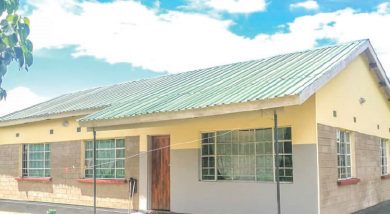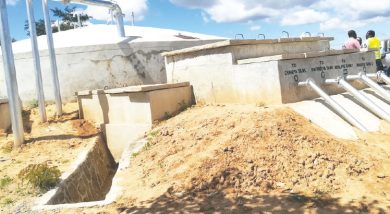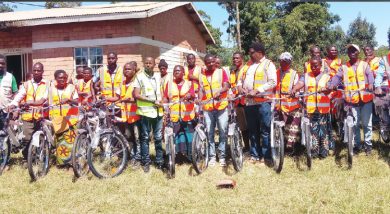LMC inspires hope in Sona
Outlines plans for fixing Malawi, to overhaul AIP
President Lazarus Chakwera on Friday called for sacrificial actions to turn around the economy, fix the broken systems and outlined plans on how his administration intends to turn things around.
According to Chakwera, the country cannot fix all broken public services at once due to financial constraints; hence, the need to have priorities.
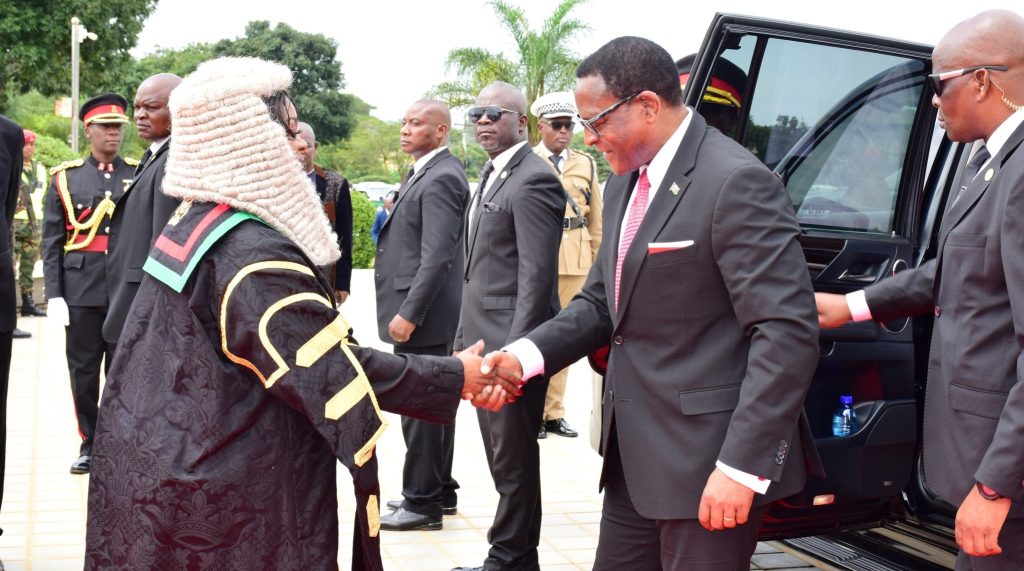
Delivering his State of the Nation of Address (Sona) at the opening of the 50th session of Parliament on Friday, Chakwera observed that the ambitious agenda to improve the country’s public service delivery has for decades been impeded by manmade obstacles and challenged Malawians to change and help in shaping a new future.
Chakwera’s two and a half hours address was characterised by disruptive scenes as the President delivered his speech such as booing and personal attacks in the chamber, especially from the opposition, some of whom were also dressed in regalia made from sacks.
Adding to the tension in the House were some visitors in the gallery who were engaged in a bitter exchange of words with some opposition lawmakers for allegedly taking pictures of the MPs, forcing Speaker Catherine Gotani-Hara to invoke a Standing Order on Mulanje South East legislator Naomi Kilekwa to move out but she refused, arguing that the visitors would manhandle her if she went outside.
Among others, Chakwera acknowledged that the economy is bleeding, the number of people facing hunger is increasing each year and that his Tonse administration’s flagship programme, the Affordable Inputs Programme (AIP),has faced challenges due to what he described as multiple systemic, historical, and cultural obstacles that must be removed. Said Chakwera: “These obstacles include dysfunctional public procurement processes; unchecked wastage of public resources on inconsequential activities; corruption and theft across all branches of government, including parastatals, Parliament, police, and the military.”
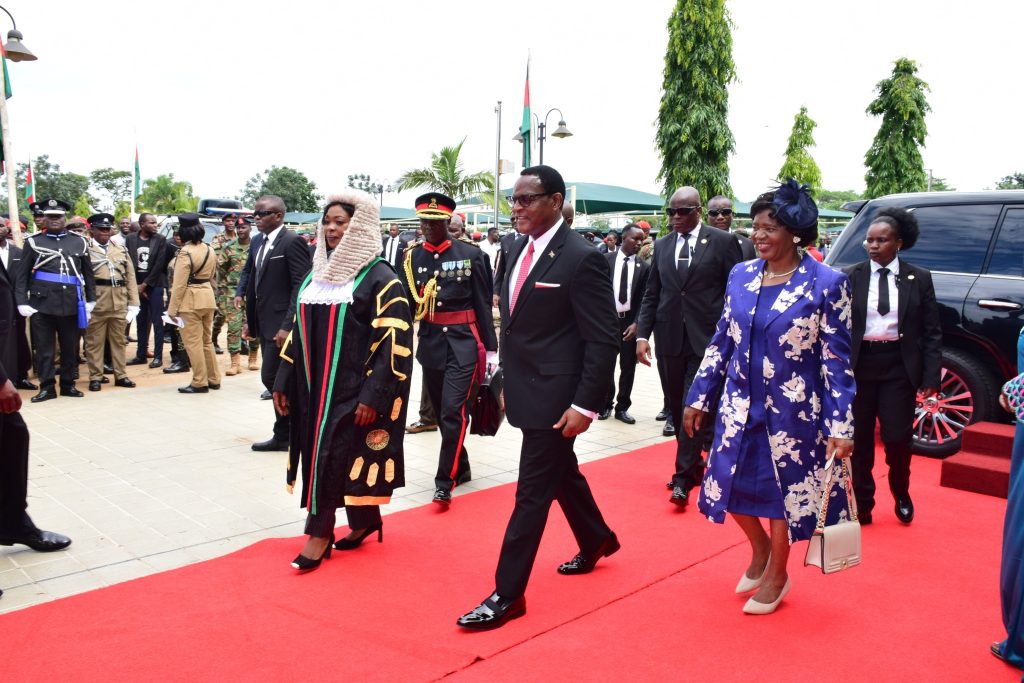
He also mentioned other obstacles such as redundant payment systems, an overstretched and inconsistent justice system, and sabotage by political agents camouflaged as public servants, rent-seeking behaviour by some public officials and an insatiable appetite for cash handouts from members of society and community leaders.
He also reiterated government plans to redesign AIP to make it more targeted and efficient, saying after three years of implementation, it is evident that the programme continues to face problems.
Chakwera, therefore, stressed that his administration’s top priority is to move Malawi towards low-middle-income status by restructuring the economy and make it more productive to create wealth, create jobs, and achieve food security.
According to him, some development partners such as the European Union are exploring the possibility of resuming budget support, which was halted in 2013.
This he said is as a result of government efforts to restore confidence of the international community in its commitment to credible governance.
Chakwera said his administration will intensify irrigation systems and move away from reliance on rain-fed farming to achieve food security as well as boost the tourism sector by waiving all visa fees for nationals from 15 key tourism markets. These include the United Kingdom, United States of America, Netherlands, Germany, Australia, Belgium, Italy, France, Poland, Norway, Finland, Sweden, China, Russia, and Canada.
Some of his administration’s achievements he highlighted in the speech include the establishment of the Financial and Economic Crimes Court, which is expected to expedite the prosecution of corruption cases and the Asset Forfeiture Unit, through which K1.4 billion worth preserved illicit assets have already been traced.
“Another way in which people try to defraud the Malawian people is by making exorbitant claims against the government in court, but thanks to the tenacity of the Attorney General, we have challenged over 850 civil cases, thus saving over K260 billion in settlement claims.”
Chakwera also announced plans to remove the restriction of an expiry date on national ID cards, a move that will see government saving billions of kwacha.
He said government will also speed up the establishment of the Mining Regulatory Authority to regulate the development, management and utilisation of the country’s mineral resources, whose Bill is expected to be tabled during the current sitting.
Commenting on the fight against corruption, The President said that despite some legal and political impediments affected progress of cases by Anti-Corruption Bureau (ACB) director general Martha Chizuma, the bureau as an institution performed well.
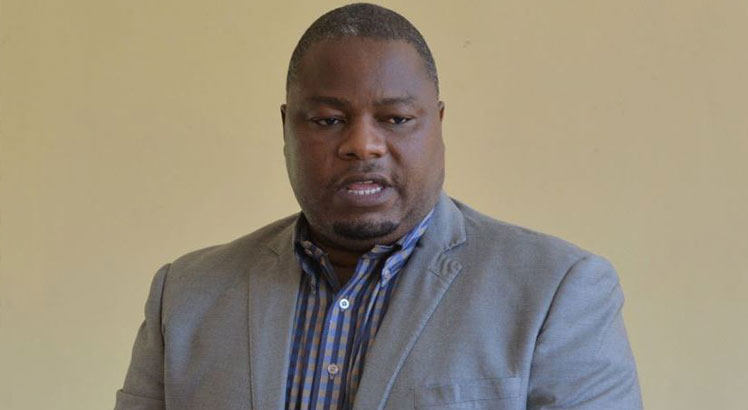
He told the House that ACB has this past year investigated 584 cases out of 914 complaints received, completed 270 investigations, recommended 67 cases for prosecution and conducted several procurement approvals.
Said Chakwera: “It is no secret that under my administration, the bureau is a fully capacitated institution with hundreds of human and billions of financial resources at its disposal, as well as greater operational freedom since the removal of the consent clause from the Corrupt Practices Act.”
Commenting on the Sona, leader of opposition Kondwani Nankhumwa said most of the successes highlighted are a repetition.
He said since Chakwera took over power in 2020 he has been assuring Malawians that he is fixing the broken systems and wondered when the process will be completed.
Said Nankhumwa: “He has made several promises before, what has worked? He promised to revamp the energy sector, but where are we today?” Conspicuously missing during the Sona were some of the key development partners such as European Union Ambassador Rune Skinnebach and US Ambassador David Young.


